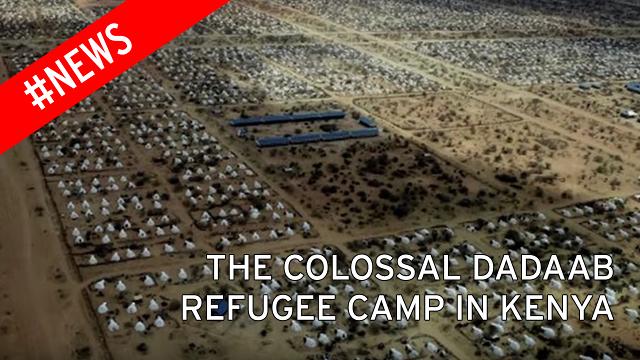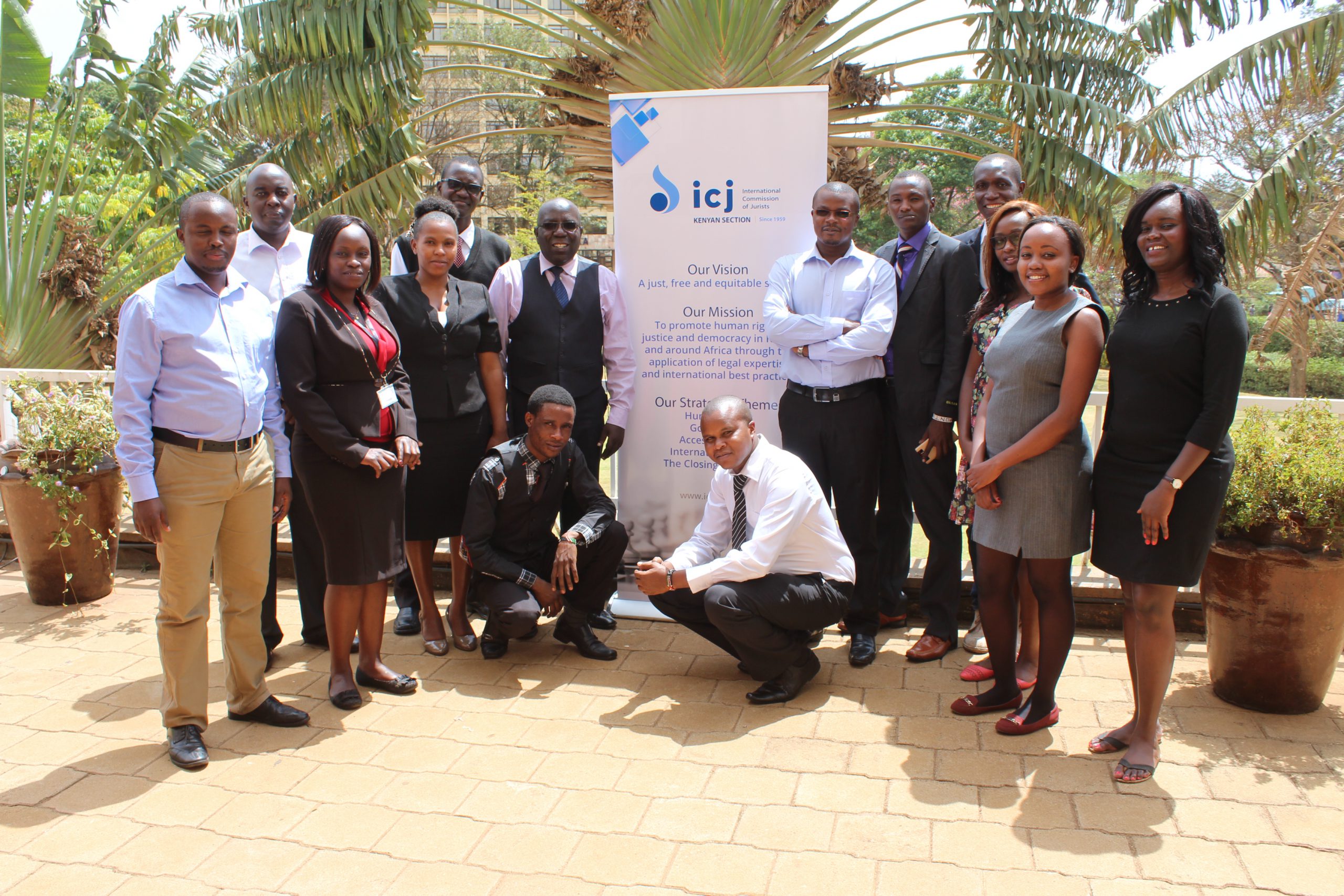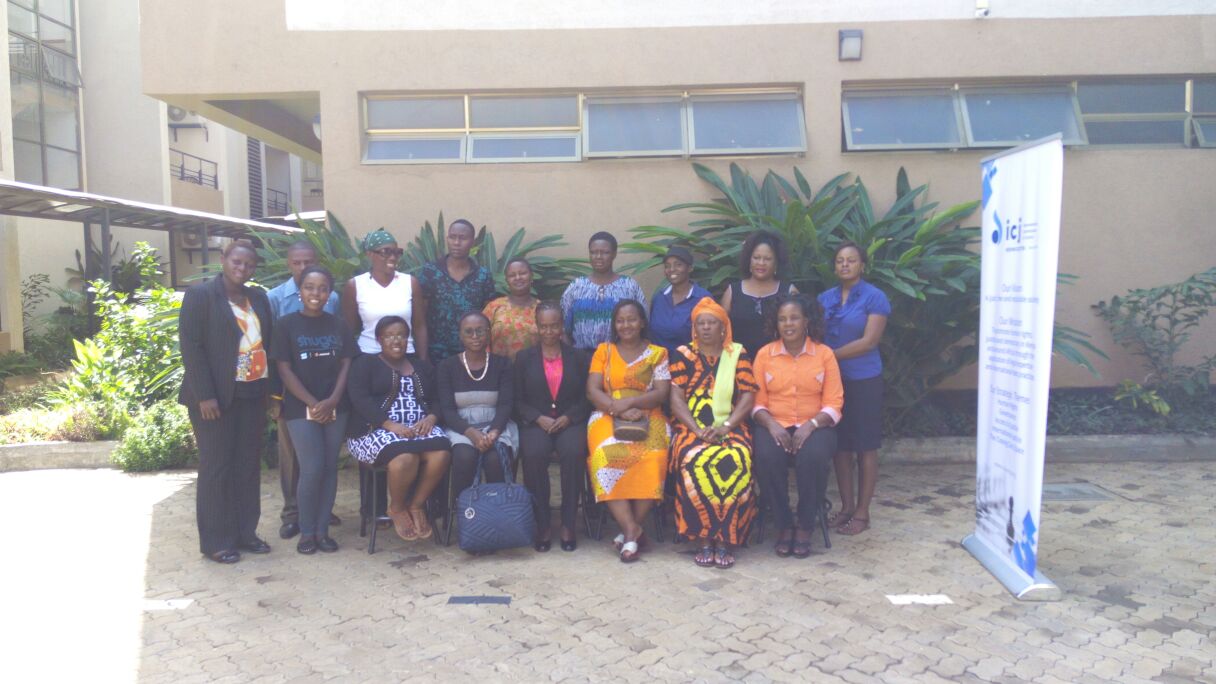BY SILAS KAMANZA AND EDIGAR KAVURAVU
NAIROBI: On 9 February 2017, the refugees hosted in Dadaab refugee camp breathed a sigh of relief when the Constitution and Human Rights Division in the High Court of Kenya overturned the decision to repatriate the refugees to their respective countries of origin. Justice John Mativo, after hearing a petition filed by the Kenya National Commission on Human Rights and Kituo Cha Sheria, ordered the Attorney General, the Ministry of Interior and Coordination of National Government, Major General (RTD) Joseph Nkaissery and Dr. (ENG) Karanja Kibicho, to restore the status quo predating the impugned directive with regard to administration of refugee affairs in Kenya and to reinstate and operationalize the Department of Refugee Affairs.
The background prior to the Court case was that on 6 May 2016, Dr. (ENG) Karanja Kibicho issued a directive by way of press release entitled “Government Statement on Refugees and Closure of Refugee Camps”. Subsequently, on 10 May 2016, Major General (RTD) Joseph Nkaissery issued a press statement confirming the disbandment of the Department of Refugees Affairs as well as the gazettement of a Task Force to implement repatriation of refugees to Somalia. He also affirmed that the Dadaab Refugee Camp complex would be closed by November 2016. Finally, on 29 April 2016, Major General Nkaissery revoked the prima facie status of refugees of Somali origin vide Gazette Notice No. 46.
According to the government, the decision to close the refugee camp was informed by: the cessation of the circumstance that gave rise to the refugee status and justifiable emergent challenges that rendered Kenya incapable of continued hosting of refugees; the tripartite agreement on repatriation of Somali refugees signed in November 2013 with UNHRC and Federal Republic of Somali was terminating on 13 November 2016; and dishonesty from the international community.The Petition raised five pertinent issues for determination by the Court. On the issue of whether or not the government’s decision violated the principle of non-refoulement, the Court acknowledged, in-depth, the principle of non-refoulement which provides for the protection of asylum seekers and refugees against being returned to persecution, danger or where their life or freedom is threatened. Notably, Justice Mativo reiterated the provisions of the UNHCR Executive Committee Conclusion No. 6 which states that the principle of non-refoulement applies to refugees, irrespective of whether they have been formally recognized as such – that is, even before a decision can be made on an application for refugee status.
On the issue of whether the government’s decision violated the refugees’ rights to a fair administrative action, the Court held that the decision and procedure of the government to close the camps and repatriate refugees violated the provisions of Article 47 of the Constitution and were in total disregard of Public Participation as envisaged under Article 10 of the Constitution as well as fair administration. Consequently, the decisions to the extent that they affected, or purported to affect the rights of refugees of Somali origin or any other refugees were ultra vires and therefore ineffective.
On the issue of whether the government’s decision violated the Constitutional rights of the refugees, the Court held that the government’s action to revoke the refugee status of asylum seekers from Somalia did not meet the proportionality test. It argued that all refugees are entitled to enjoy the constitutionally guaranteed rights. The government’s decision was therefore discriminatory, arbitrary, and unconstitutional and contradicted the provisions of international law, international and regional instruments on the treatment of refugees.
On the issue of whether the circumstances in Somalia had fundamentally changed to warrant repatriation of the refugees, the Court noted the provisions of the 1951 Convention relating to the Status of Refugees which provides that once an individual is determined to be a refugee, their status is maintained unless they fall within the terms of the cessation clauses or their status is cancelled or revoked. Finally, on the issue of whether the decision by the Hon. Attorney General disbanding the Department of Refugees is invalid and therefore null and void, the Court observed that Section 6 of the Refugee Act establishes the Department of Refugee Affairs as a public office responsible for all administrative matters concerning refugees in Kenya and the coordinating body of all activities and programmes relating to refugees. The Court found that a public body continues to exist so long as the founding instrument remains in force.The decision by the Court is a positive step toward the realization of refugee rights. Refugees have the right to safe asylum. However, international protection comprises more than physical safety. Refugees should receive at least the same rights and basic help as any other foreigner who is a legal resident, including freedom of thought, of movement, and freedom from torture and degrading treatment.
It cannot be gainsaid that refugees have an impact on the host communities. A recent study conducted by World Bank and UNHCR dubbed, “yes” in my background: The Economics of Refugees and their social dynamics in Kakuma ,Kenya”, described the complexities of the interactions between refugees and their host communities and assessed their positive and negative outcomes within the current relief paradigm, contextualized by: the history of interactions between the Turkana people and the central government from the British colonial period to the current administration; Recent developments regarding devolution, oil, and water; and Since 1992,the arrival and continuing flow of large numbers of refugees into northern Turkana.
The overall goal of the social impact analysis was to provide a set of evidence-based insights and policy recommendations to the Kenyan government, the UNHCR and associated bodies, and development actors to support Turkana’s development and to benefit Kakuma so that members of the refugee and host community alike can study, find jobs and opportunities, run businesses, work, raise children, celebrate achievements etc. The study concluded that: the refugee presence in Kakuma has an overall beneficial and permanent impact on Turkana’s economy, boosting Turkana’s Gross Regional Product by over 3 percent and increasing total employment by about 3 percent; economic integration trumps decampment (the sudden closure of the camps); and economic integration, which increases per capita hosts income by a (non-trivial) 6 percent, is the appropriate policy for maximizing the beneficial impact of refugees.
By Edigah Kavuravu and Silas Kamanza.











